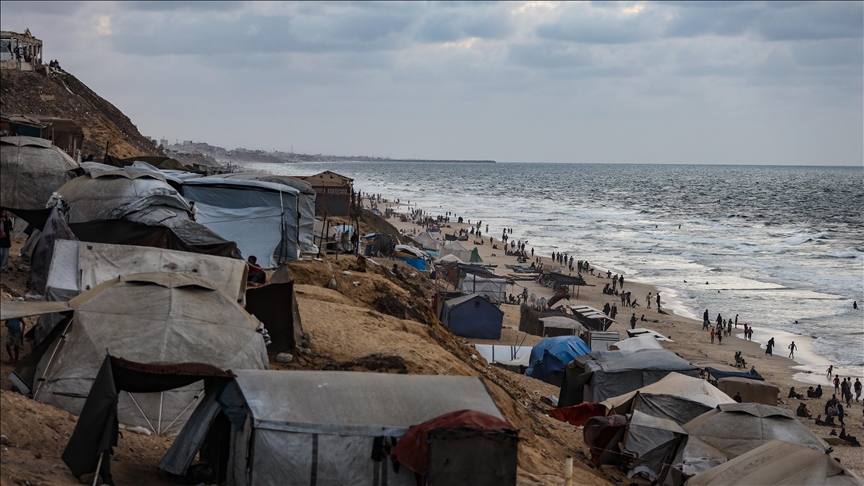Pakistani, Malaysian leaders discuss Trump's Gaza ceasefire plan, counterterrorism
Visiting Pakistani Premier Shehbaz Sharif holds talks with Malaysian counterpart Anwar Ibrahim in Kuala Lumpur

KARACHI, Pakistan
Pakistani and Malaysian leaders on Monday discussed a string of key regional and global issues, including US President Donald Trump's Gaza ceasefire plan, establishing peace in South Asia, and joint counterterrorism efforts.
"We jointly look favorably at the 20-point peace initiative by US President Donald Trump," Malaysian Prime Minister Anwar Ibrahim said while addressing a joint press stakeout along with his Pakistani counterpart Shehbaz Sharif in Kuala Lumpur.
Sharif is on a three-day state visit to Malaysia.
The two leaders held talks before the news conference, state-run Pakistan Television reported.
"Although Malaysia does express some concerns, at least on the point of cessation of hostilities, stopping the insane bombings and killings by the Zionist Israeli regime, a clear position has been taken by Arab countries, Muslim countries, and most of the countries in the world now,” Anwar said.
Expressing the hope for peace in the war-torn enclave, Anwar said he is “extremely appreciative” of Pakistan’s stance on the Gaza issue.
"Our joint position in supporting this peace initiative would probably further help this desire to achieve durable peace,” he maintained.
Trump’s 20-point plan includes the release of all Israeli hostages, the disbanding of Hamas, the flow of humanitarian aid into Gaza, and the transfer of the enclave’s control to an interim administration led by Palestinian technocrats and international experts.
About regional issues, Anwar said he discussed with Sharif establishing peace in the subcontinent and also joint efforts for countering terrorism.
Sharif, for his part, said his country wants to “join hands” with Malaysia for mutually beneficial projects, which allowed for expertise from the two countries to come together.
"Today, I want to make it publicly known that Pakistan wants to join hands with Malaysia, not only to benefit from your experience but also to have joint ventures and mutually beneficial projects where Malaysian and Pakistani expertise can come together," he said.
He said the two sides had “very productive discussions” on a wide range of matters pertaining to bilateral relations and other international issues.
Pakistan, Sharif further said, stands to benefit from Malaysian experience in technology, artificial intelligence, and other areas of economic growth where Malaysia has done "remarkably well."
Anwar said that Kuala Lumpur has increased rice imports from Pakistan, while there was also an interest in importing meat.
During the meeting, the two sides agreed to continue working together to explore new avenues for collaboration, including investment and joint ventures in sectors such as information technology and telecommunications, the Halal industry, automotive, connectivity, green energy, electrical and electronic manufacturing, tourism, higher education, climate change, and agriculture.
Both sides also agreed to enhance the import quota of halal meat exports from Pakistan to Malaysia to $200 million, said a statement from Sharif's office.
Sharif reiterated Pakistan’s stance on the Kashmir issue and thanked Malaysia for its "steadfast" support for a peaceful settlement of the lingering dispute in accordance with UN resolutions.
Following the talks, the leaders witnessed an exchange of a number of MoUs (memorandum of understanding) between the two countries in the fields of training of diplomats, tourism, halal certification, higher education, combating and preventing corruption, and small and medium enterprises.
The two prime ministers launched the Urdu translation of Prime Minister Anwar Ibrahim’s seminal work, SCRIPT, which presents his vision and values on leadership.








